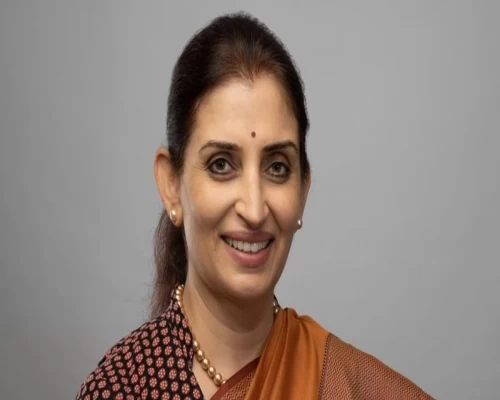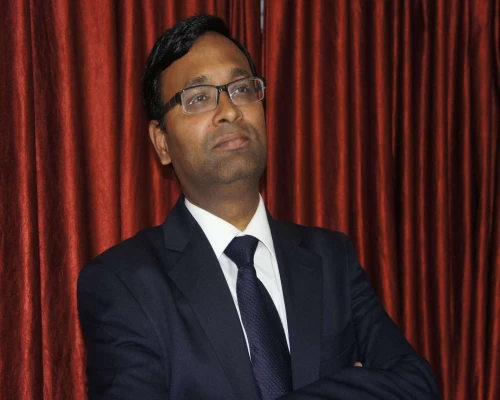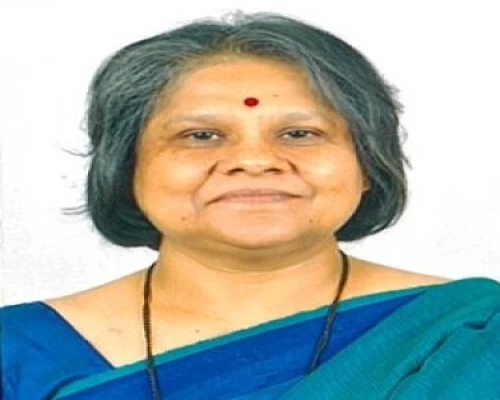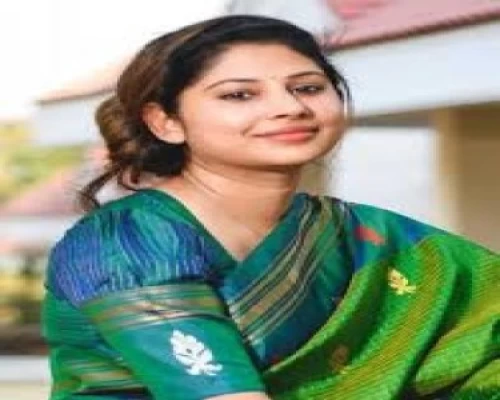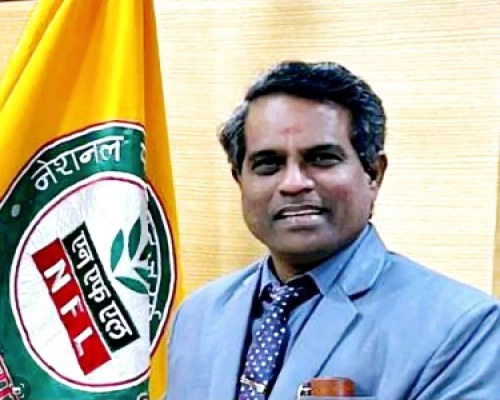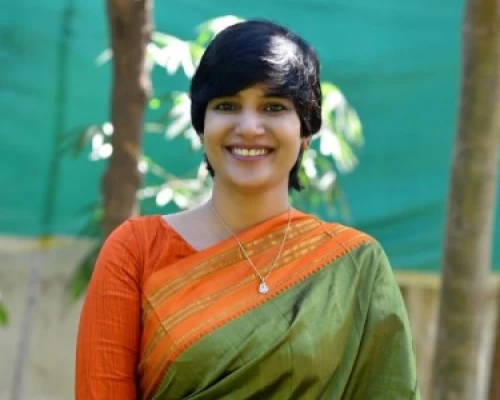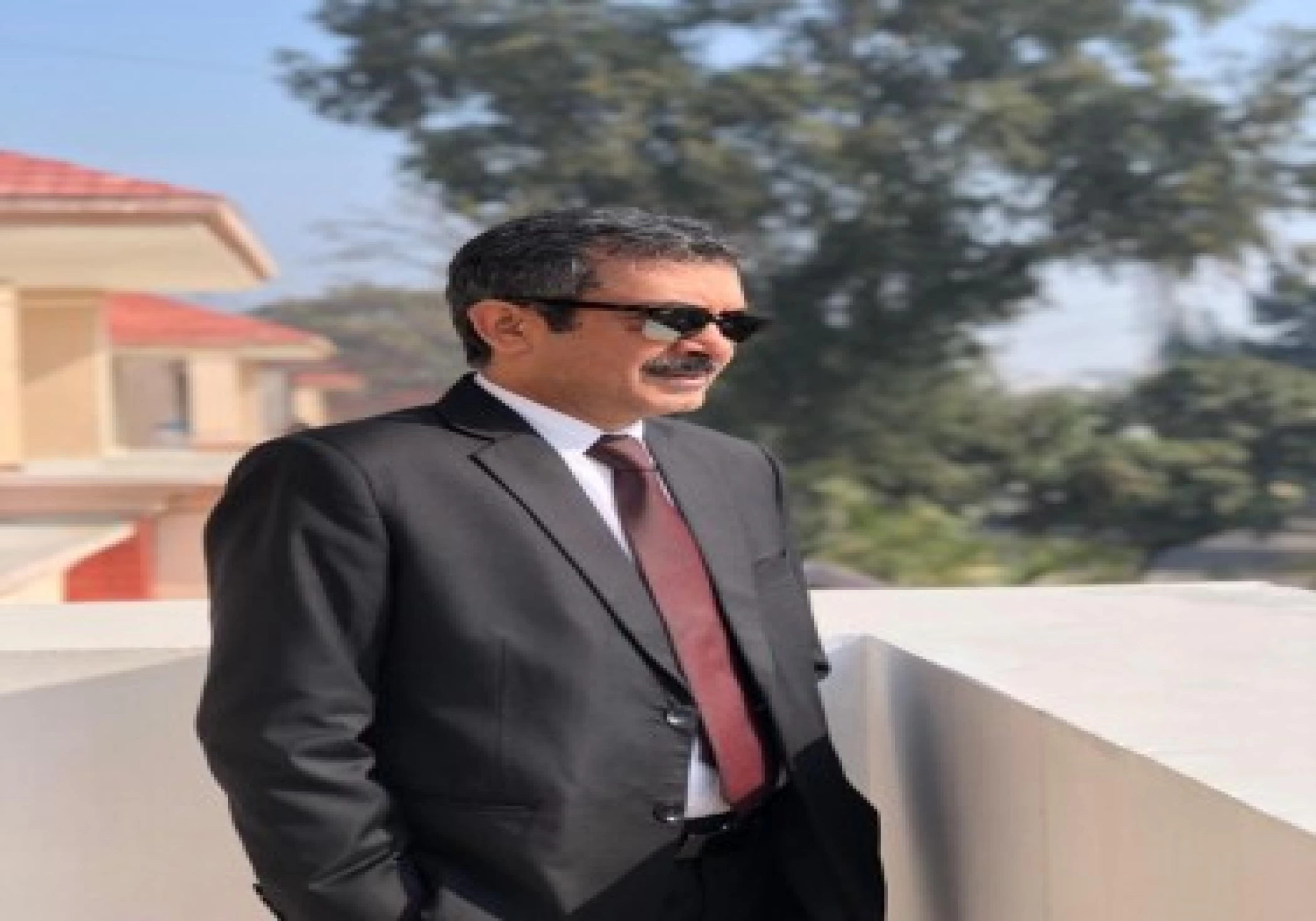
One has to constantly upgrade his or her skills when you are a part of bureaucracy, says Amresh Singh, Commissioner of Income Tax, Chandigarh in an exclusive interview with Naina Jha of Bureaucrats India.
“One has to constantly upgrade his or her skills when you are a part of bureaucracy. Not only best practices from within the country but from other countries should be imbibed and adopted as well. And for this, therefore, mid-term or mid-career training, which are already there in one form or the other, needs to be strengthened. There should be no qualms about learning new things. The assumption that I know everything needs to go. The bureaucrats need to possess the best skill sets within them and learning from the subordinates who are abreast with technology and global trends could be an important trend,” said Mr Singh. Read the edited excerpts of his interview.
How has been your journey in bureaucracy so far?
Bureaucracy provides the bridge between lawmakers and the intended beneficiaries. That is the arm that ensures redemption of the State's trusteeship of public welfare. My journey has been quite satisfactory thus far. During the course I have seen both highs and lows. Apart from the core areas within the Income Tax Department, I have been on deputation for six years in the capacity of Deputy Secretary and Director. Those six years were spent initially in the Inter State Council Secretariat and thereafter in the Ministry of Culture.
During the course of my stints away from the department, if I am asked to reveal the high points there are two episodes that readily come to mind; the first involved organizing an international conference on federalism in 2007 where there were nearly 1300 practitioners from around the globe participating. That event was entirely and efficiently managed by a small team of one Director and two Deputy Secretaries albeit with support of private entities.
Similarly, in 2010 while in the Ministry of Culture, the Ancient Monument and Archaeological Site Preservation Act, initially formulated by the British, was amended substantially with the basic purpose of stalling rampant encroachments around the ancient monuments and heritage sites that we have. Heralded by the then Secretary, Culture the process involved marathon discussions within a Committee formed for the purpose which included legal minds and administrators and additionally with the Ministry of Law while drafting the changes in existing law.
Within the department, there are two stints which I feel have been the most fulfilling. One was way back in 1999-2000, when I was the Deputy Director of Investigation at Delhi. Investigation wing carries out searches which involve the most intrusive powers of the Income Tax Department and therefore are supposed to be redeemed in the most responsible and accountable fashion.
Since I was possibly the youngest in the then team, my initial role, was to carry out assignments on behalf of the seniors and learn the ropes in the bargain. Subsequently, having earned the confidence of my superiors in the interregnum, I was allowed to undertake independent searches, two amongst which were acknowledged (at the risk of being unabashed) as exemplary. In one case, the accused chose to scoot away from the country leaving behind properties that were utilized by the banks to realise their dues.
Importantly, this was an early example of how involving other law enforcement agencies could lead to collaboration and enhance the capability of striking at unique modus operandi of economic malfeasance. The second stint of extreme satisfaction occurred when I was elevated to the rank of Commissioner and was given the substantive charge of Exemptions where trusts and societies which are into non-governmental charity work, claimed exemption from taxes as a consequence. This assignment helped me sieve the entities undertaking commendable and genuine charitable purposes from those created and aimed at taking advantage of tax laws in the garb of charity. It was heartening to note that the efforts were acknowledged far and wide leading to some path-breaking changes in the relevant sections in the Act.
As a bureaucrat, you have enormous opportunities to serve the people through effective implementation. How has been your experience on this count so far?
While introspecting, I feel when one joins the Civil Services, the young body and enthusiastic mind bolsters the intent to serve. Invariably the civil servants claim to have realised their childhood dreams and to that extent the intent to serve is suitably ingrained in everyone. For effective realisation of the intent that one started with, it needs to be backed by a solid knowledge of the government’s policies and related laws. Laws being complex are subject to variable interpretations. It is here that the effectiveness of the administrator comes to play when he interprets in favour of his organisation and the target groups keeping the practicalities in mind. For enhancing effectiveness, therefore, there is a need for constant upgradation of skills.
Help us to understand how intricate it is to work for the government – given the enormity of the task at hand as well as expectations from a civil servant.
I reckon there are a lot of expectations from a bureaucrat because we are the implementers of government policies and therefore in direct interface with the populace. In my case, I would rather restrict myself to tax administration per se and for a tax administrator, it is quite imperative that he follows what has been prescribed by Chanakya. His tenets emphasize that administration is dependent on its fiscal strength (‘Kosh Mulo Danda’ finds space in the logo of the department) cautioning simultaneously that the efforts should be towards drawing out nectar without destroying the flower. This is an intricate balance to be achieved for all tax collectors. To achieve that, there could be no gainsaying that the Income Tax Acts need simplification.
Apart from the fact that there is a universal proclivity to reduce tax incidence the taxpayers are mostly not aware of the complexities of the Act. This has promoted, over the years, a tendency to rely on authorized representatives. In some cases, regrettably, they are taken for a ride by the representatives. The anger of taxpayers, however, is directed towards the income tax department leading, as a consequence, to a not so enviable image. Notwithstanding, there are many subsequent initiatives of the government towards making tax administration as transparent as possible. The powers to pick and choose cases by the officers have been done away with. Increasing reliance is being placed on digital techniques and data analytics.
Chances of direct interface with the department are being precluded in a systematic fashion. Nearly all of the processes within the department are now computer- driven. It’s only a matter of time that pejorative terms like tax terrorism (which is not entirely the department’s handiwork) would become passé. It’s also the time that the tax payers realise their onerous responsibility of paying taxes correctly and truthfully with the government reposing confidence in them.
Bureaucracy in India has undergone a metamorphosis in the last few decades, especially in terms of design and delivery. It is far more efficient today, and this has given rise to soaring expectations. How do you look at this trend?
I do not perceive any harm in soaring expectations from the bureaucracy. The issue is particularly relevant in the case of our country of massive proportions and immense diversities. What is needed is constant and periodic appraisal of the expected desires of the people, building in perspective planning (instead of incremental responses) by accommodating the feedback to ascertain long term goals and suitably augmenting the resources and infrastructure available to the bureaucracy. I have cited above how the Income Tax Department is being recalibrated and reoriented. I am sure this is a welcome trend that keeps everyone in the government on their toes, responsive and accountable.
Technology has played a key role in enhancing transparency and efficiency in governance. Do you think futuristic technologies including Artificial Intelligence will continue to play an equally significant role in executing government welfare programs?
There is no denying that futuristic technologies augment the decision-making capabilities of government servants and usher in more transparent processes and enhanced accountability. The myriad diversities and the consequent challenges the government faces, however, calls for a simultaneous emphasis on the human interface. This is particularly relevant for agencies assigned developmental roles and to those who need to ensure the rule of law. One has to ensure that the disadvantaged (who invariably are not attuned to technology and its requirements) are not left behind. There needs to be a prior assessment study and extensive research before implementation of these tools.
Would you like to share any experience on the use of technology in governance?
It has nearly been a decade that the Income Tax Department started a focused progress on a path which is based on computers. The powers to pick cases for scrutiny are no longer available with the assessing officers. There is no randomness about it any longer since it is mostly done now by a Centralised Computer Aided Scrutiny Selection System on the basis of criterion developed centrally which in turn is further based on a robust system of data analytics and risk assessment. Recent initiatives further preclude any interface between the department and the tax-payers in practically all major proceedings. The advantages also lie in the fact that the new processes, coupled with increased digitization and data sharing, shall stop leakage of revenue. Outlandish and high-pitched assessments have become practices of the past. Increased use of technology is beneficial to both the department and the tax-payers.
What are some of the changes you wish to see in bureaucracy?
A difficult question! The foremost thing is that one has to constantly upgrade his or her skills when you are a part of bureaucracy. Not only best practices from within the country but from other countries should be imbibed and adopted as well. And for this, therefore, mid-term or mid-career training, which are already there in one form or the other, needs to be strengthened. There should be no qualms about learning new things. The assumption that I know everything needs to go. The bureaucrats need to possess the best skill sets within them and learning from the subordinates who are abreast with technology and global trends could be an important trend.
What is your view on lateral entry at the level of the Joint Secretary?
The intention clearly is to address, what is in view of the government, skill deficit in its present set and to include fresh talent invariably from the private sector. With increased emphasis on efficiency the government is trying to focus on increased specialization. This is one manifestation of the age-old debate between generalists and specialists. Without calling out anyone it is to be borne in mind that watertight prescriptions should not preclude practical considerations required to ensure effective governance. The balance therefore has to be maintained. Since the specialists augment the decision-making process lateral entry is a welcome step.
What are the lesser-known facts about bureaucracy in India?
The lesser-known fact rather unacknowledged aspect of bureaucracy is that a sizable number of officers are honest and hardworking. Therefore, terms like sarkari babus should not be used in a pejorative sense. No one goes into the conditions and circumstances under which the officers perform. A qualitative analysis would reveal the extent and quality of hardships the officers undergo while redeeming their assignments. There are some of the finest brains and immensely talented pool which need to be utilised to their full potential. Shortcomings, if you may, invariably are consequences of things and circumstances often beyond one’s control. Also, the government has a robust system of dealing with deliberate individual misfeasance.
Do you feel the people have a lot of expectations from the civil servants?
Of course, there are and that by itself is the raison d’être of the civil services. However, the people have to understand that not all blame lies with the government and its arms in the field in the case of a policy or its implementation going wrong. They have to be patient for reformatory steps to be taken.
Your message for the aspiring Civil Servants!
I think the Civil Services as a whole is the most important part in the governance system, they being the implementers and, therefore, whoever joins the Civil Services have to be well intentioned and willing to give up many things and ready to make sacrifices. Only those who possess these two attributes should join the Civil Services. The idealism of the youth (amply seen in the demeanour and outlook of the new recruits) needs to be sustained throughout and not dissipate with the passage of time, in the name of practicalities etc. Bureaucracy also needs to emerge and exist as a monolith without giving in to either service-based inequities or to any primordial fractures.
How did you reorient yourself to adapt to the Civil Services?
One needs to be comprehensively aware of the fundamentals. The second aspect is being aware of happenings in the country and internationally and possess the will to adapt to the fast-paced changes. I am also willing to learn from my subordinates who I always treat at par and as sources of novel ideas. Civil servants need to interpret law in its totality. My educational background has been quite variegated-high school in Science, Graduation in Economics, and Masters in International Relations. Geography and Public Administration were my optional subjects for the civil services examination. The exposure to diverse areas of study helps me in examining every case individually and also in a holistic manner.
Tell us about your family.
My parents have retired from government jobs-my father was a doctor with the state government and mother was a professor of English in a government college. I credit my mother for command over the languages and my father for instilling the values of discipline and integrity in my job. My four siblings are all doing very well in their respective fields. My spouse is a professor at JNU and my son is pursuing a final year of law degree from the National University of Juridical Sciences, Kolkata.
How do you take out time for family and kids?
This has been very episodic. Whenever I’ve been in a hard assignment the family has been neglected. To their credit they have never been demanding either in respect of time or resources. Nuclear families these days are sure to face loneliness in times of adversity. Currently also I am in Chandigarh, my wife is in Delhi and my son in Kolkata. However, luckily with the support of the larger family and some very supportive friends we have been able to see through such phases. I try to spend as much time as possible with the family.
Share your fondest memory as a Civil Servant.
Fondest memory arrives every year when officers of the latest batch come for on-the-job training with stars in their eyes and a resolve to serve. These interactions give an opportunity to share one’s experiences and one feels satisfied in being able to caution them on the pitfalls of governance so that they remain glued to their idealism and resolve.
What are your hobbies and how do you take out time to pursue that?
Singing is my prime hobby and I do not look for a specific time or occasion to pursue that. Whenever I feel like it, I sing and sometimes even alone. One feels often that some training in singing would have helped but regrettably that remained a pipe dream. To pursue the hobby, however, I acquired a good karaoke. It has turned out to be a major stress buster. Someday I dream of recording professionally in a studio or bringing out a music album with my son.
As an aside, I would like to confess that this hobby had saved me in my Civil services interview as well. I was fumbling at an engineering question about which I was completely ignorant. Despite my constant refrain that I didn’t have the slightest clue the interviewer kept persisting. At that juncture another interviewer came to my rescue by asking what I liked about Kishore Kumar. That steered me away from the jitters that were slowly building inside and would have surely led to a disastrous interview. Gardening is another passion which I have picked up and spent my weekends tending to my garden.
(The views expressed are that of the individual and not of the government)


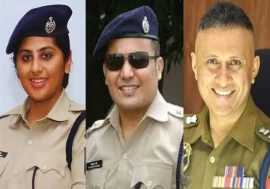

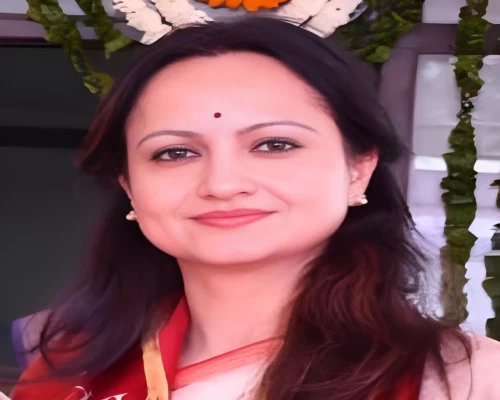
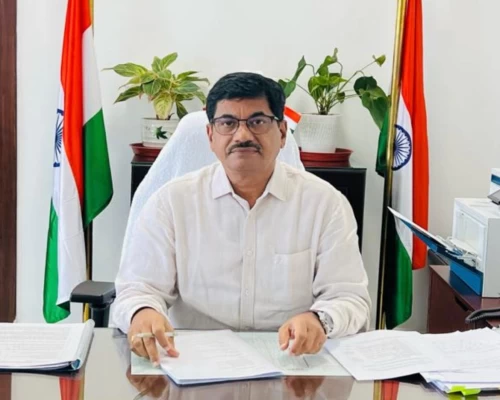
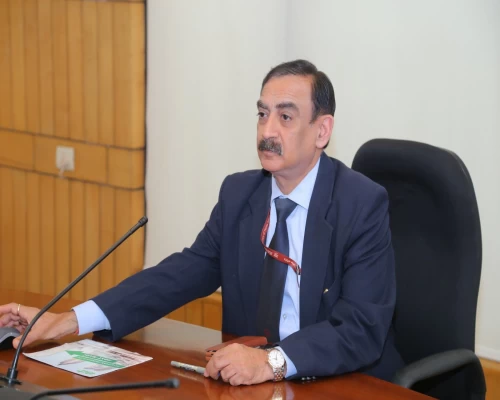
_500_x_400.webp)
